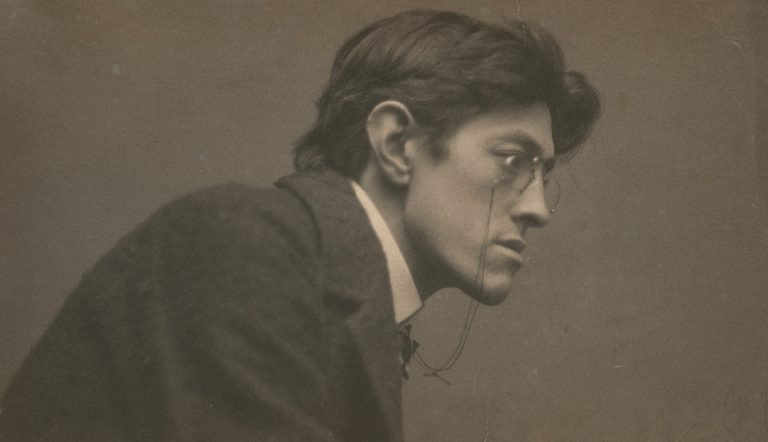
If ever a city and a man were made for each other, it was San Francisco and Sadakichi Hartmann.
Like the character he played in the 1924 film The Thief of Baghdad, Hartmann was a kind of court magician to successive bohemian circles all over the world. In The Bohemians, he amuses and mystifies a young Dorothea Lange, who attends one of his notorious performances soon after arriving in the city.
You might think I made him up; I didn’t.
Born in Japan in 1867 to a German diplomat and a Japanese mother, Hartmann studied widely in Europe before launching into a career as an art critic and theater impresario in the United States. As a young man, he presented himself to Walt Whitman; on several occasions, they’d while away the hours in the poet’s Camden house by discussing poetry over plates of fried eggs.
When his bold theatrics got him exiled from Boston, he shuffled over to Greenwich Village, where he took up the mantle of “King of Bohemia.”
As a mixed-race man at a time of intense anti-Asian sentiment and policy, he was highly conscious of his effect on people. Often he engaged in a self-conscious performance of Orientalism. An 1889 photograph shows him in full-on “Mikado garb”; it was a role he’d reprise in life and on the stage and screen.
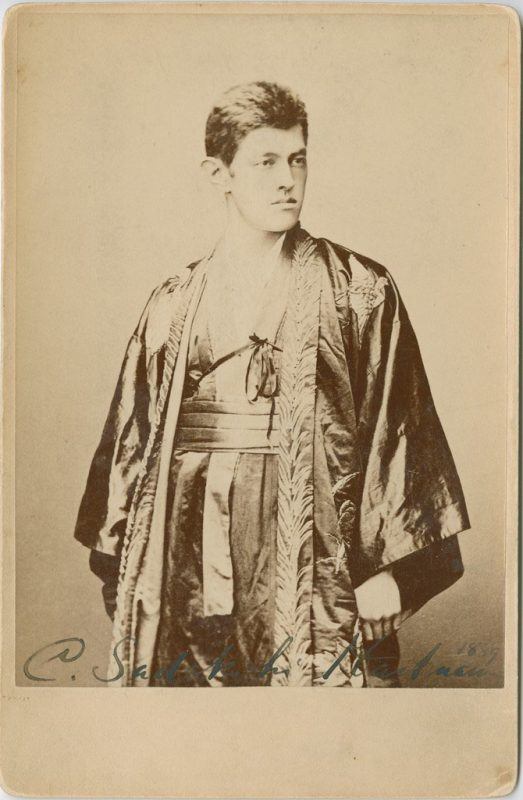
In 1924 he appeared as a court magician in The Thief of Baghdad with Douglass Fairbanks. But it was San Francisco, not Hollywood, that proved a perfect stage for Hartmann.
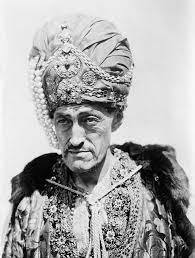
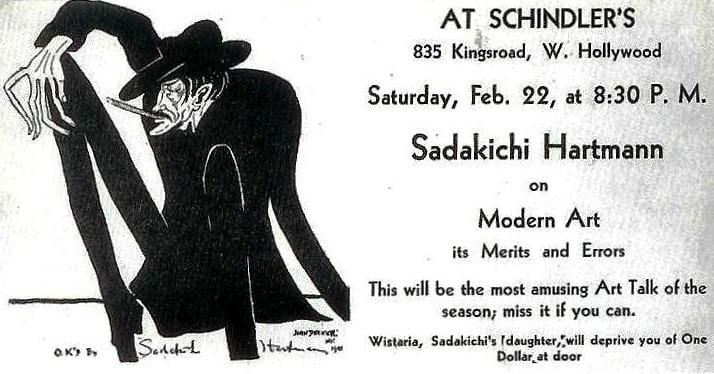
Soon after arriving in the City in 1918, he rented the old Hanford Mansion, a grand palace atop Russian Hill that was rumored to be haunted. There he staged plays and poetry readings. One night when performing Ibsen’s “Ghosts,” he ordered a fire to be lit outside the house to coincide with the fire in the play’s second act. Unfortunately, the fire got out of control and nearly destroyed the mansion—and everyone present.
When the police arrived, they arrested Hartmann and forbade him from performing in public.
Exiled from the stage, one day he went rowing on the San Francisco Bay. He soon found himself being swept through the Golden Gate. He later claimed he’d been lost at sea for thirty days, though given his penchant for drama, it may have been much less. Lucky for him, a United States battleship came to his rescue and brought him back to the City.
He was notoriously incapable of holding down a job (or unwilling to do so). During World War I, he also refused to enlist or work for the war effort. At one point he was brought before a county judge who ordered him to work in the Potrero shipyards. His idea of “work” involved sitting on a coil of rope and staring out at the Bay. When his incensed supervisor complained, Hartmann was ordered to again appear before the judge, but he managed to talk his way into giving public lectures on art as his contribution to the war effort.
He left the City in a cloud of perfume—literally. In 1919 Hartmann gave one of his final San Francisco performances at the Paul Elder Gallery on Post Street. The performance was a “symphony of smells”—a “tour” in which he conjured a distant “Orient” through a travel monologue while floral fragrances were blown at the audience. This show soon became famous throughout the art world, and is still cited as an important part of the history of performance art.
He spent the next twenty years in a cabin in the Coachella Valley, corresponding with illustrious pen pals and producing a significant legacy as an art historian and pioneer in the field of photographic criticism. During World War II, he came under suspicion as a Japanese spy and was nearly interned.
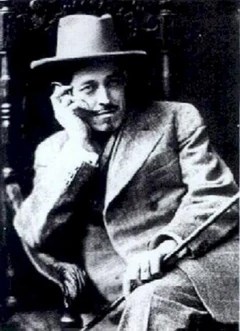
He died in 1944, having fallen into obscurity, but was “rediscovered” in the 1970s. “Court magician to two generations of American intellectuals,” Beat poet Kenneth Rexroth called him—an admiring nod from one San Francisco Bohemian to another.
add a comment
+ COMMENTS